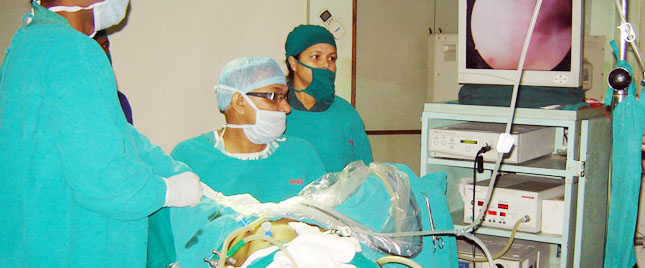
Everything You Must Know About Pregnancy Loss
Early pregnancy loss is called miscarriage. It represents a pregnancy that ends within the first twenty weeks of conception. According to research, 15% of diagnosed pregnancies unfortunately result in miscarriage. Miscarriage could be classified into –
- Complete – when an embryo and the surrounding tissues leave the uterus completely. It involves bleeding and cramping. Complete miscarriages resolve in a week.
- Incomplete – when the cervix breaks open and some of the tissues are released. The tissue or the embryo will not fully leave the uterus. This cause bleeding and constant pain.
- Threatened – when you experience cramps and bleeding but the cervix does not open. In this case, a miscarriage may not happen.
- Missed – when the embryo dies and stays inside the uterus. You may not realize it happened. It is usually discovered through an ultrasound.
- Recurrent – when you have three or more miscarriages in the first trimester.

Reasons for Early Pregnancy Loss
According to the best gynecologist in Kolkata, the cause of pregnancy loss is not always identified. It is generally a random issue with chromosomes that occurs during conception. You may feel you did something that paved the way for the miscarriage, but exercising, working, sexual intercourse, etc. have no real impact.
Risk Factors for Early Pregnancy Loss
The experts providing treatments for heart disease with pregnancy, you may have a miscarriage if you are 35 years old or more. A couple of medical conditions that elevate the risk are thyroid, diabetes, problems with immune system, and polycystic ovarian syndrome (PCOS).
Symptoms of Early Pregnancy Loss
The experts treating diabetes mellitus with pregnancy said the most apparent symptoms of miscarriage are cramping and bleeding. But these do not necessarily mean you will have a miscarriage. Around one-fourth of pregnancies are accompanied by bleeding, and half of these pregnancies are not of any concern. If you have cramping or bleeding in the first trimester, please get in touch with your gynecologist.
There are some more signs indicating you have a miscarriage. If you experience any, please seek professional assistance immediately.
- Mild or severe backache
- Abnormal weight loss
- Excruciating contractions happening every five to twenty minutes
- Pinkish discharge from vagina
- Tissues that resembles clot passing through the vagina
Treatments for Early Pregnancy Loss
You may treat miscarriage surgically and non-surgically.
Non-surgical
In most of the cases, a woman’s body passes the pregnancy tissues naturally. This takes around a couple of weeks. If it is taking days, your doctor may give you some medication that would help pass the tissue seamlessly.
When you are passing the pregnancy tissue, you will experience cramps, bleeding, nausea, and diarrhoea. Your doctor will give you some medicine to ease the symptoms. Are you in the first trimester? If yes, the tissues will look small. They would look like blood clots and not a baby.
Your doctor will perform blood tests and ultrasound after your miscarriage. This confirms no tissue is left in your uterus.

Surgical
Surgery is the only option if your miscarriage has complications. Are you experiencing heavy bleeding, an infection, or any condition that does not allow the tissue to leave the uterus? If yes, please opt for any of the two surgical treatments –
- Vacuum Aspiration – The experts offering treatments for SLE with pregnancy said in this process, a tiny tube is injected into the uterus. The tube is jointed to a suction instrument. The tissues are suctioned out of the uterus. Vacuum aspiration is performed under anaesthesia.
- Dilation & Curettage – In this process, the doctor breaks the cervix open and utilizes a device to remove the tissues. Dilation & Curettage is generally performed under general or local anaesthesia.
After the surgery, you must not put anything inside the vagina. So, do not use tampons or have sex. These can cause infection. Some of the signs of infection are fever, bleeding, chills, and immense pain. Please contact your doctor right away if you notice any of the signs. It would do more harm if you wait.
Can You Prevent Early Pregnancy Loss?
You cannot prevent pregnancy loss after it began, regardless of the trimester a woman is in. If the foetal heartbeat is present, you may save your pregnancy. Collaborate with your doctor immediately. You must –
- Avoid sexual intercourse under all circumstances
- Take complete bed rest
- Get underlying conditions that cause bleeding treated
- Receive a hormone progesterone injection
- Receive a Rh immunoglobulin injection
Pregnancy Loss : Myths and Facts
Myth – Miscarriage is Rare
Miscarriages are not at all rare. Around ten percent of pregnant women suffer from miscarriages. The total number may be high because plenty of women have miscarriage too early.
Myth – Specific Foods Cause Miscarriage
After you have conceived, you should avoid a few specific foods. This is because the foods have harmful bacteria that can cause miscarriage. Foods you should stay away from are raw sushi, shellfish, raw or undercooked meat, raw eggs, cheese, unpasteurized ,milk, and processed meats.
Myth – Miscarriage is the Woman’s Fault
A large number of miscarriages happen early in the pregnancy and due to chromosomal abnormality. Neither the father nor the mother is responsible.
Myth – Bleeding Means Miscarriage
Spotting is immensely common in the first few weeks. If you notice blood, please talk to your doctor if it is normal or a sign of miscarriage.
Bottom Line
Everyone deals with pregnancy losses differently. Most of the patients have trouble coping with the emotions that come with miscarriage. If you feel extremely upset or feel like you require help, there are several resources readily available. Talk to the doctor. They can refer you to a support group.
In almost all cases, miscarriages can never be prevented. It is usually due to chromosomal abnormality that does not allow the foetus to develop.
Repeated miscarriages are uncommon. Only about 1% of woman will have a second or third miscarriage. If a particular cause is identified, a doctor may help you treat this condition and keep future pregnancy losses at bay.
Take proper care of yourself. You will have a healthy pregnancy through exercise, diet, and prenatal checkups.